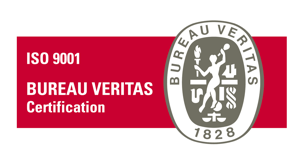Article

Banderillas and estocadas: Spain adopts administrative procedures for the invalidation and revocation of trademarks
On January 23, 2023, the Spanish authorities will implement administrative proceedings for the invalidity and revocation of trademarks, in accordance with the mandate of the latest European Harmonization Directive.
Upon payment of a small fee (200 euros), third parties will be able to apply to the "Oficina Española de Patentes y Marcas" (OEPM) for the invalidation or revocation of trademarks as the main cause of action. The Courts shall retain jurisdiction over applications for invalidity or revocation filed as counterclaims in infringement actions.
Invalidity may be sought on absolute and relative grounds of refusal. With regard to the former, it will not be necessary to justify legitimate interest to bring the action. In addition to the usual grounds, claims based on the applicant's bad faith fall into this category. Moreover, these actions are not subject to any statute of limitations.
For relative grounds of invalidity, like the EUIPO, Spanish law requires that all the prior rights that can be invoked to be cumulated. It is therefore not possible to bring multiple actions based on relative grounds that could have been invoked in the initial action. The plaintiff must also take care to avoid any claim of foreclosure by acquiescence. Proof of use may also be requested as an exception in invalidity proceedings based on earlier trademarks. In this case, owners must provide evidence of use over the relevant double period: this is a trap in which many claimants are likely to stumble. Indeed, without the need for the defendant or the OEPM itself to request it or even allude to it, the earlier rights owners will have to demonstrate genuine use of their trademarks: on the one hand, during the five-year period immediately prior to the filing of the invalidity action, and on the other hand, the case arising, during the five-year period immediately prior to the filing of the trademark being challenged.
For revocation, the situation is simpler, there is only one relevant period, that of the five years preceding the initiation of the action. Moreover, there is no need for the plaintiff to demonstrate a legitimate interest to bring the action. Such an interest is presumed to exist in the philosophy behind this type of action for the common cause: of removing from the Register rights which lack commercial presence on the market and thereby forfeiting the industrial property right accorded.
For all revocation action, the owners of the challenged trademarks will have two months to file observations in reply and the requisite evidence of use. In the context of an application for a declaration of invalidity, the applicant will only have one month to provide the relevant evidence.
In revocation actions, the plaintiff will have the opportunity to file observations in reply to the evidence provided by the defendant. Beyond this, each party may file only one set of submissions unless the OEPM requests additional arguments on a particular point. Moreover, unlike administrative contentious procedures conducted before the French Office (INPI), there are no oral hearings.
There is no official deadline before which a decision must be rendered by the Office after the closure of the adversarial phase of proceedings. However, to the extent the OEPM has created a new department dedicated to cancellation actions, divided into two separate sections (one for invalidity, the other for revocation), it is likely that decisions will be rendered within a few months, at least initially.
Appeals will be available to unsuccessful parties: first, an administrative appeal to the Board within the OEPM, and then a judicial appeal to the courts of appeal ("Audiencias provinciales").
In overall terms, the rules of procedure are very similar to those applied at the EUIPO. However, there are some differences: firstly, the OEPM will not issue decisions regarding apportioning of costs, and secondly, procedural deadlines may not generally be extended, with the exception of requests made by parties not having an address in Spain who, in accordance with civil procedure rules, can request an extension of 15 days. The parties will therefore have to be particularly responsive to all official deadlines.
For any further information regarding these newly created administrative contentious proceedings, feel free to contact the team of Spanish based attorneys of the Plasseraud IP group.























